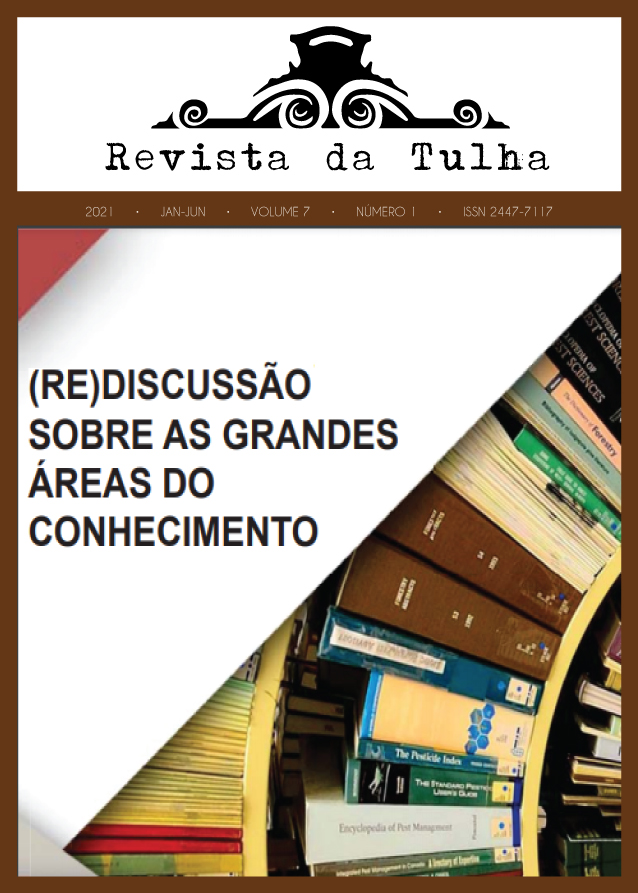What the hands don’t dare to touch: critical review of the ‘musical premises’ from the book ‘feitiço decente’ by Carlos Sandroni
DOI:
https://doi.org/10.11606/issn.2447-7117.rt.2021.182067Keywords:
Popular Music, Samba, Syncopation, Claves, TimelinesAbstract
This article proposes a critical analysis of some concepts and ideas presented by Carlos Sandroni in his book: Feitiço Decente (2001), mainly in the chapter: musical premises. From a polemic posture it is intended to deepen in the discussion about some musicological misunderstandings in the conceptualisation and observations of musical elements, in especial the rhythmic aspects, used in brazilian and african popular music: such as syncopation, claves and timelines, and additive and divisive metrics, brought by the author. Through a chosen bibliography, it is possible to observe that some authors, which have similar views about this subject as Sandroni, let it show the ideological premises in their analytical posture, such as: overvaluation of individual perception; appeal to difference and alterity; and the refusal to use traditional analytic tools in their research about popular music. The intention of this work is to demonstrate how some ideological premises of certain new musicology can blur the vision of some non hegemonic music expressionsDownloads
References
AGAWU, Kofi. The Invention of "African Rhythm". Journal of the American Musicological Society. Vol. 48, No.3. 380-395. Outono, 1995.
AGAWU, Kofi. Structural Analysis or Cultural Analysis? Competing Perspectives on the “Standard Pattern” of West African Rhythm. Journal of the American Musicological Society.Vol. 59. No. 1. 1-46. 2006.
AGAWU, Kofi. Contesting Difference. In: CLAYTON, Martin; HERBERT, Trevor; MIDDELTON, Richard. The cultural studies of music. Nova Iorque: Routledge, 2003, 227-237.
AROM, Simha. African Polyphony and Polyrhythm: Musical structure and methodology. 1.ED. Cambridge, UK: CAMBRIDGE UNIVERSITY PRESS. 1991
BOLÃO, Oscar. Batuque é um privilégio: A percussão na música do Rio de Janeiro para músicos, arranjadores e compositores. 1.ED. São Paulo,SP: Irmãos Vitale, 2010.
CARDOSO, ngelo Nonato. A linguagem dos tambores. Tese de doutorado em música/etnomusicologia. Universidade Federal da Bahia, Salvador: 2006.
CARVALHO, José Alexandre. Infraestrutura e Superestrutura na rítmica da Música Popular. Anais do SEFIM. Porto Alegre, RS. Vol. 2, No. 2. 356-358. 2016
CLER, Jerôme. Commentary on "Measuring Aksak Rhythm and Synchronization in Transylvanian Village Music by Using Motion Capture". Empirical Musicology Review. Paris. Vol. 10, No. 4. 302-304. 2015.
COHEN, Sara. A hemiólia no estudo n2: Cordes à Vide, de György Liget. Cadernos do Colóquio 2004-2005. Rio de Janeiro. Vol.7, No. 1. 118-137. 2005.
COOK, Nicholas. Beyond the score: Música as performance. 1.ED. EUA: OUP, 2013.
FREITAS, Sérgio. A memória e o valor da síncope: da diferença do que ensinam os antigos e os modernos. Per musi. Belo Horizonte, MG. No. 22. 127-142. 2010.
NATTIEZ, Jean-Jacques, O combate entre Cronos e Orfeu: Ensaios de semiologia musical aplicada. Trad. Luiz Paulo Sampaio. 1.ED. São Paulo, SP: Via lettera Editora e Livraria, 2005
SANDRONI, Carlos. Feitiço Decente: transformações no samba do Rio de Janeiro, 1917-1933. 1.ED. Rio de Janeiro, RJ: Jorge Zahar ED, 2001.
SMALL, Christopher. Musicking: The meanings of performing and listening. 1.ED. Hanover, NH: Wesleyan University Press, 1998.
TEMPERLEY, David. Meter and Grouping in African Music: A View from Music Theory. Ethnomusicology. Vol.44, No.1. 65-96. Inverno, 2000.
Downloads
Published
Issue
Section
License
Copyright (c) 2021 Ricardo Augusto Brandão

This work is licensed under a Creative Commons Attribution 4.0 International License.
Authors retain copyright and grant the journal the right to first publication, with the work licensed under the Creative Commons Attribution License CC-BY-NC:
This work is licensed under a Creative Commons Attribution 4.0 International License.



